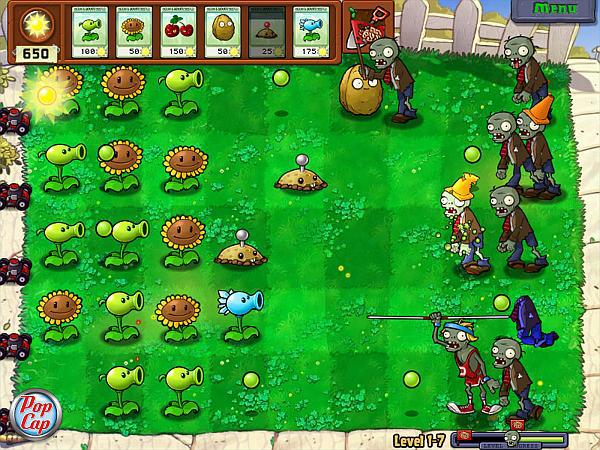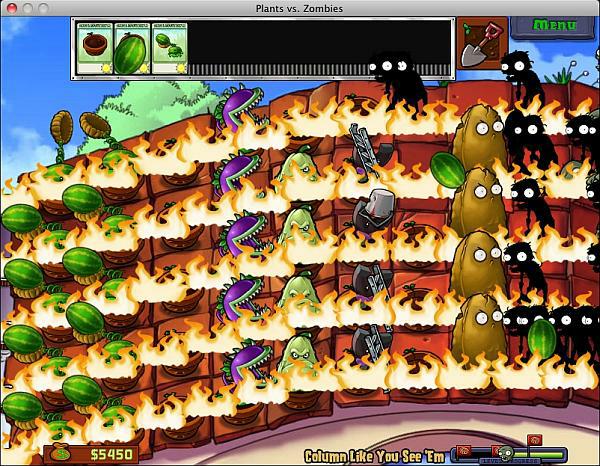This post has not been edited by the GamesBeat staff. Opinions by GamesBeat community writers do not necessarily reflect those of the staff.

I realize that many real-time strategy fans would ignore Plants Vs. Zombies as a whimsical casual diversion. The graphics look cute. The cartoon landscapes are hardly realistic.
Hardcore gamers are really missing out on one of the most universally acceptable franchises to pick up and play anywhere.
At first glance, Plants Vs. Zombies seems like an overpriced spin-off from the developer, PopCap Games. After all, the entire objective of this game is to stop a cartoonish zombie invasion by growing plants.

That's where Plants Vs. Zombies breaks away from PopCap's generic formula. The plants act more like soldiers in an RTS franchise, such as Warcraft. The sunflowers collect sun so that the player can grow their own army of deadly flora. Some of the bellflowers shoot peas to take apart zombies. Other crops act as bombs and line-clearers, to mow down groups of the undead.
Plants Vs. Zombies is my preferred RTS war zone, because it breaks away from many of the boring stereotypes of the tower defense genre. The action moves at a quick pace, cutting the entire time span of one match into only two minutes. The zombies carry a more human-like sense of humor, sending special cards as mementos of the war.
The popular franchise even has puzzle elements. Players often have to make challenging decisions when they are choosing their plant weapons. For instance, the roof stages forced me to choose pea catapults, because the normal pea shooters couldn't shoot over slanted hills. I also needed to grow weapons to counter some of the zombies who could climb over the "wall" nut crops.
Plants Vs. Zombies also includes a special tribute near the end of the adventure. On the final battle with Dr. Zomboss, the composer of the game plugs in a snazzy tune that sounded very similar to the music of the Chill Penguin stage in Mega Man X. The developers clearly must have been big fans of the Blue Bomber's series of platform-jumpers. Even the design of Dr. Zomboss brings up amusing references to Dr. Wily in the Mega Man games.

Even though Plants Vs. Zombies initially forces people to play the Adventure mode, it opens up a myriad of post-game styles of gameplay. The Quick Play mode includes a wider variety of mini games. It allows the gamer to choose from any of the individual levels in the Adventure mode.
The achievements also provide some amusing easter eggs to find. One of the clever tasks involved the hunt for the Chinese zombies. Aside from the fact that these pale creatures look like bad Asian stereotypes, I admire all the hard work the developers contributed into this bonus feature. I also have yet to find the Yeti-Zombie hidden in this masterpiece.
Plants Vs. Zombies may look like a ordinary casual game, but it includes many hardcore elements that pleases a wide variety of puzzle and strategy fans. In short, it is probably the most accessible RTS game in the market thus far. It is available on nearly every console platform, so nearly everyone should at least own one version of this smash hit.
What are your thoughts on Plants vs. Zombies? Does it deserve all the attention it has received? Or is it recycling the same old tropes from other zombie games? Write about it in the comments below.
